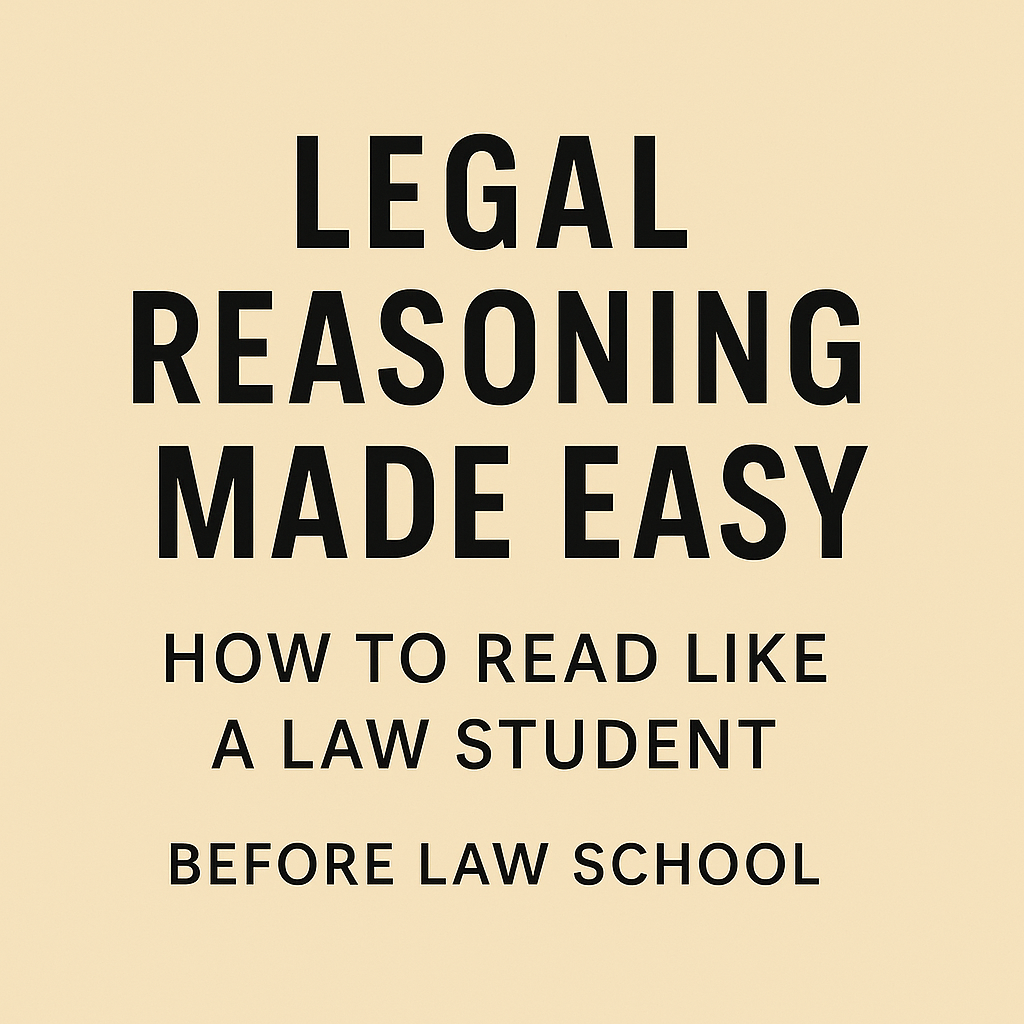Legal reasoning made easy: how to read like a law student before law school

When you hear the term “legal reasoning,” it might sound intimidating. But here’s the truth: legal reasoning isn’t about memorizing hundreds of laws or quoting Latin phrases—it’s about thinking clearly, logically, and fairly.
If you're preparing for the CLAT exam, mastering legal reasoning early gives you a huge advantage. It’s the section that most directly reflects what you’ll actually study in law school. And the best part? You don’t need to be in law school to start reading like a law student.
Let’s break it down and show you how to train your mind for legal reasoning—before your first day on campus.
What is legal reasoning, really?
Legal reasoning is the ability to apply a general rule or principle to a specific situation.
In CLAT, you’ll often get a short paragraph explaining a legal concept (like “negligence” or “freedom of speech”), followed by a hypothetical situation and questions like:
“Based on the principle above, is person A liable?”
“Which option best supports the conclusion?”
“What assumption is being made here?”
You don’t need prior legal knowledge. What you need is clarity, comprehension, and common sense.
Why legal reasoning matters
Legal reasoning isn’t just another section on the CLAT exam. It does three big things:
-
Boosts your score – It’s a high-weightage section and usually quite scoring if approached correctly.
-
Prepares you for law school – It builds the same habits you’ll use in moot courts, internships, and case studies.
-
Builds real-world thinking – You’ll start seeing every news story or debate through the lens of rights, duties, and justice.
How to start reading like a law student
You don’t need a legal background to think like a law student. Here’s how to build the mindset:
1. Read case-style content
Start reading editorial articles from newspapers like The Hindu, Indian Express, or LiveLaw. Focus on legal news, public policy, and debates about rights and governance.
As you read, ask yourself:
- What is the issue here?
- What law or principle is involved?
- Are there two sides to this?
- What would be a fair outcome?
This trains your brain to think critically—just like a law student.
2. Practice passage-based questions
Don’t just read theory—apply it. Solve legal reasoning passages from previous CLAT papers and updated mock tests. Practice applying principles like “no one shall be punished without law” or “a person is innocent until proven guilty.”
Over time, you’ll develop the habit of spotting the principle and applying it calmly—even under pressure.
3. Simplify the jargon
Legal language can seem dense at first. Use tools like ChatGPT or online glossaries to break down complex terms like “vicarious liability” or “mens rea” into simple ideas. Think of it like learning a new language—one concept at a time.
4. Follow one legal podcast or YouTube channel
Tuning into simplified legal explainers once a week helps build curiosity and long-term retention. It also keeps you up-to-date with real-world legal developments, which can often show up in your exam.
What not to do
- Don’t try to read bare acts or law textbooks right now—they’re written for trained students.
- Don’t memorize legal definitions. CLAT doesn’t test memory; it tests understanding.
- Don’t panic if you don’t get it at first. Legal reasoning is a skill, not a trick—and skills take practice.
Build momentum with mock tests
The best way to improve legal reasoning is through regular practice. Take a CLAT mock test every week, especially ones that include updated, passage-style legal reasoning sections. This will:
- Boost your reading speed
- Train you to spot principles quickly
- Show you how examiners frame logic in legal questions
You’ll also learn to manage time better—since legal reasoning often includes longer passages.
A final note for CLAT 2025 aspirants
As you gear up for exam season, don’t forget the basics:
- Check the CLAT website for syllabus and pattern updates
- Download your CLAT admit card well in advance
- Track the expected CLAT cutoff for your target NLU
- Plan your travel early if your CLAT exam centre is in another city
Final thoughts: start reading like a lawyer today
Legal reasoning isn’t just for law school. It’s a way of thinking that helps you analyze the world better. And the earlier you start, the easier it becomes. With just a few simple habits—reading well, questioning fairly, and practicing often—you’ll walk into CLAT confident, composed, and ready to win.
Register now with GoFillForm for daily legal reasoning practice, mock tests tailored to CLAT, and expert tips that make complex ideas simple.
Train your brain today—so tomorrow, you think like a lawyer.
- Art
- Causes
- Crafts
- Dance
- Drinks
- Film
- Fitness
- Food
- Juegos
- Gardening
- Health
- Home
- Literature
- Music
- Networking
- Other
- Party
- Religion
- Shopping
- Sports
- Theater
- Wellness



